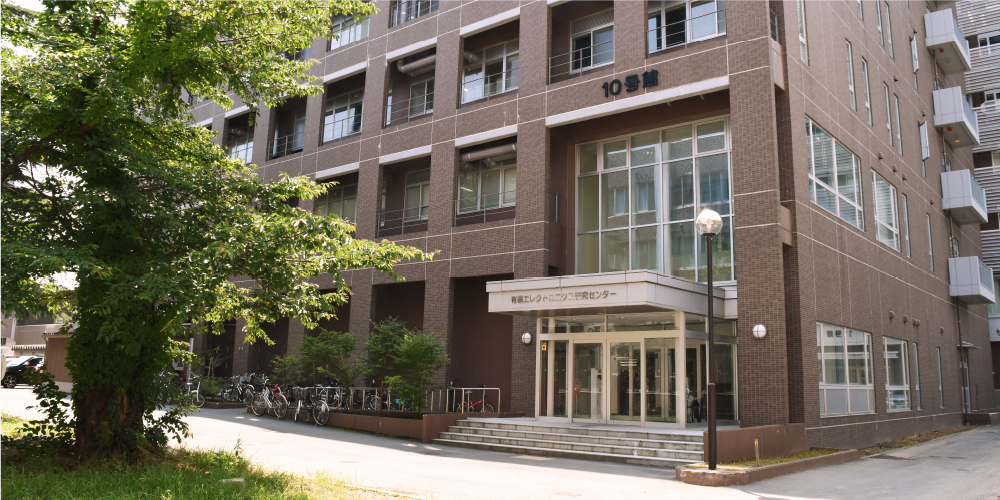Organic Electronics
The Yamagata University Research Center for Organic Electronics (ROEL) opened in 2011 with the support of the Japan Ministry of Education, Culture, Sports, Science, and Technology. It is the world's foremost research center dedicated to the field of organic electronics. In the “Japan Regional Innovation Strategy Program by the Excellence (J-RISE)” program supported by the Japan Science and Technology Agency (JST), distinguished researchers from three different disciplines are brought together: OLEDs, organic solar cells, and organic transistors.
Various other projects have also been conducted at ROEL, including the “Promotion Program for Strategic Innovation Development (S-Innova)” (supported by JST), the “Basic Evaluation Technology Development for Next-Generation Green Innovation,” the “Facilitation of Strategic International Standardization,” and the “Basic Technology Development for High-efficiency and High-quality Next-generation Illumination Device” projects, all of which have been supported by the Japan New Energy and Industrial Technology Development (NEDO).
The 5-storey, 5,663-square-meter center has specialized equipment for the synthesis of organic electronics, and it has device fabrication facilities as well as equipment for evaluating and analyzing organic materials and devices.
ROEL has strong ties with the other research centers at Yamagata University, such as the Innovation Center for Organic Electronics (INOEL), the Research Center for Green Materials and Advanced Processing (GMAP), and the Frontier Center for Organic Materials (FROM).

